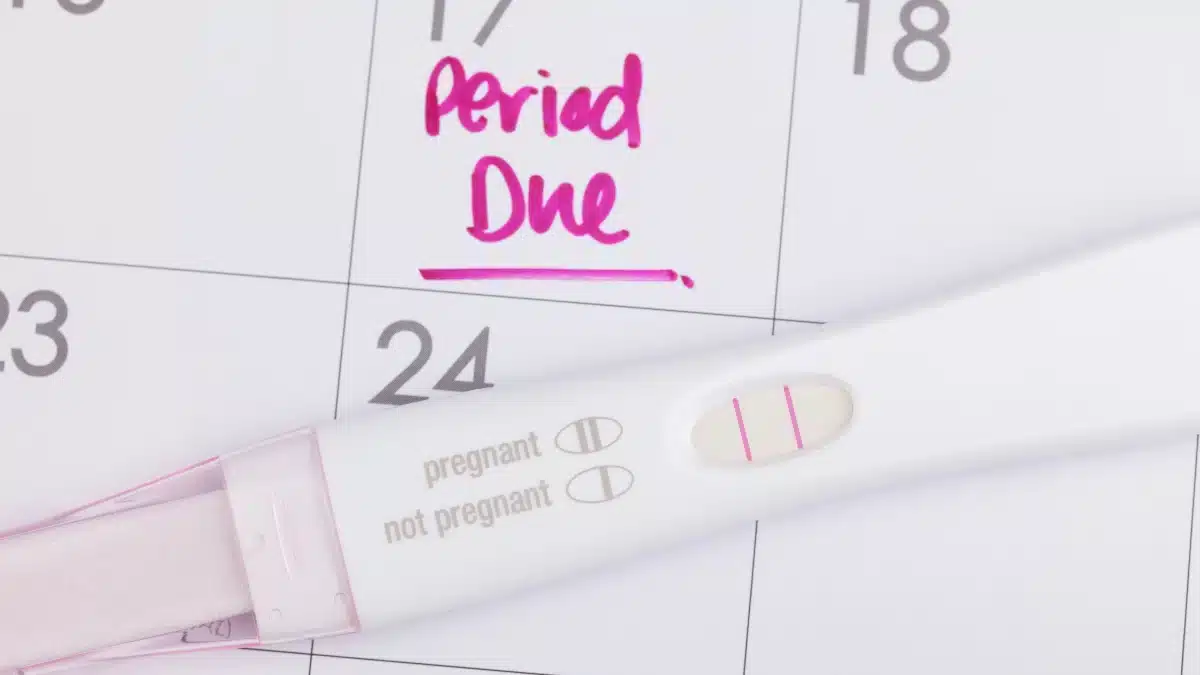Exploring the Effects of Not Having a Period for a Long Time
The absence of menstruation can greatly affect a person’s physical and psychological well-being.
According to the International Journal of Reproduction, Contraception, Obstetrics, and Gynecology, menstrual absence affects about three to four percent of women worldwide.
Apart from disrupting the reproductive potential, not having periods can also signify other anatomical issues like underdeveloped ovaries.
Let us look at the effects of not having a period for a long time in greater detail.
What does it mean not to have periods
When a woman of reproductive age misses one or two periods or does not have menstruation for a long time (specifically more than 3 months), it is termed Amenorrhea.
The reasons behind not having periods for a long time include both neurological and endocrine factors.
Amenorrhea can be classified into two types depending on the occurrence before or after menarche (the beginning of the menstrual cycle):
- When a girl has no menarche by age 16, it is termed Primary Amenorrhea
- Absence of menses for three or more months is Secondary Amenorrhea
The causes of Secondary Amenorrhea (not having periods) are:
- Hyperprolactinemia (elevated Prolactin levels)
- Polycystic Ovary Syndrome (PCOS)
- Primary Ovarian Insufficiency
- Hypothalamic Amenorrhea
Primary Amenorrhea can be caused by anatomical defects, elevated Follicle-Stimulating Hormone (FSH), and Hyperprolactinemia.
However, not having periods is normal under certain conditions like pregnancy and lactation.
Let us take a detailed look at the effects of not having a period for a long time.
Effects of not having a period
Although regular periods cause women to lose a lot of blood in their lifetime, their absence is more harmful to the body.
The effects of not having a period for a long time can be severe in the long run if not diagnosed and treated early.
Some of the effects of menstrual absence to understand their physiological and psychological impact.
Reduced fertility
Since periods are related to ovulation, not having periods for a long time can cause problems with your fertility.
Most patients without periods have PCOS, which can lead to anovulation (no release of eggs from the ovary) and loss of fertility.
Bone issues

Amenorrhea is responsible for the loss of bone density in women, but the exact mechanisms are unknown.
Women who suffer from a lack of periods for a long time usually have low Estrogen levels.
The low levels of Estrogen cause higher rates of bone turnover but low resorption of minerals for bones.
Not having periods for a long time can cause severe depletion in bone minerals and cause bone fractures without any injury.
Cardiovascular problems
Women who have not had periods for a long time have been shown to have low blood vessel functions, an early sign of heart disease.
According to the American Heart Association Journal, young women who have stopped having periods have low Estrogen levels and are more predisposed to cardiovascular problems.
Premature Menopause and aging
Premature Ovarian Failure (POF) is associated with the absence of periods in women below the age of normal menopause.
Menopausal symptoms are commonly associated with women diagnosed with Amenorrhea (absence of periods).
Not having periods for a long time can cause aging symptoms in normally young individuals.
Psychological impact
The psychological aspect of not having periods is often overlooked but is equally important for a healthy life.
The absence of periods for a long time can cause psychological issues like dysfunctional attitudes, eating disorders, depression, sleeping disorders, and Alexithymia (difficulty in expressing emotions) in young women.
Treatment options

The issue of not having periods for a long time needs medical intervention for treatment.
Estrogen Replacement Therapy (gels, creams, and pills), birth control pills, and Clomiphene Citrate (CC) are some medications that are generally recommended.
Being overweight and underweight are harmful, so maintaining a healthy weight with moderate exercise is one of the best methods to prevent Amenorrhea.
Keeping track of your menstrual cycles and looking for medical help for any irregularities you notice is important to treat the early signs of menstrual absence.
Takeaway
A medical condition known as Amenorrhoea is not having periods for more than three months.
Amenorrhea in young women can be caused by elevated Prolactin levels, PCOS, Primary Ovarian Insufficiency, and Hypothalamic Amenorrhea.
Not having periods can have serious consequences like losing fertility and bone density, cardiovascular issues, premature Menopause and aging, and psychological distress.
Treatment options like Estrogen Replacement Therapy, Clomiphene Citrate, and birth control pills can cure menstrual absence.
Healthy lifestyle choices like having a healthy weight, moderate exercise, and keeping track of your menstrual cycles can help to avoid the effects of not having a period for a long time.
Always consult your doctor if you are experiencing menstrual abuse for more than three months without issues like pregnancy, lactation, or menopause.
Frequently Asked Questions
Is it unhealthy not to have a period for years?
Yes, it is extremely unhealthy not to have a period for years if you are at an age where menstruation is normal. The absence of periods without conditions like pregnancy, lactation, and Menopause is a sign of underlying ailments that can have serious consequences, loss of bone density and fertility, premature Menopause, and cardiovascular issues.
How long is it OK to not have a period?
Normal periods follow a cycle of 24 to 38 days, which varies depending on the person. If you have not experienced a period for more than three months, it is medically classified as Amenorrhoea. However, missing your menstrual cycle during pregnancy, lactation periods, and contraceptives is normal.
What if a girl never gets her period?
If a girl has not experienced her periods even when she is 16, an urgent medical condition called primary Amenorrhoea needs further diagnosis. Probable causes include underdeveloped ovaries, stress, heavy exercise, extreme weight loss, or other underlying causes.
WowRx uses only high-quality sources while writing our articles. Please read our content information policy to know more about how we keep our content reliable and trustworthy.






